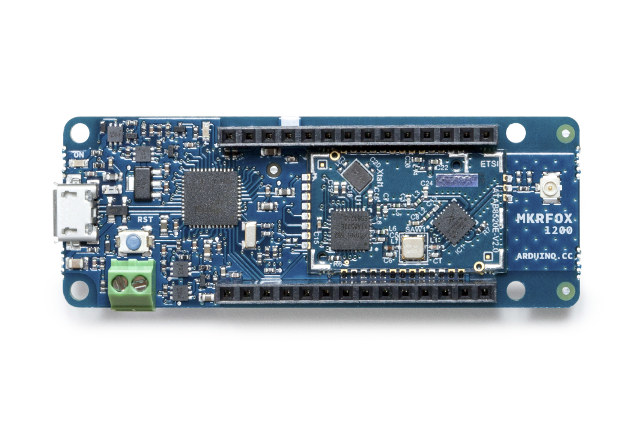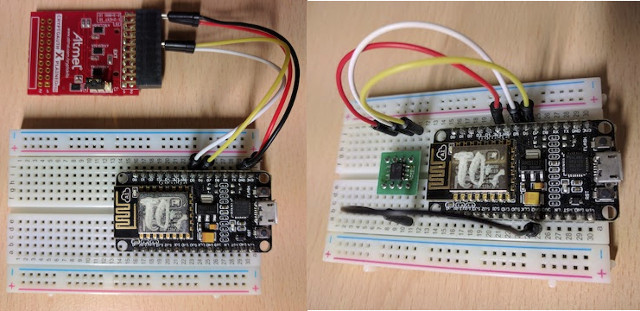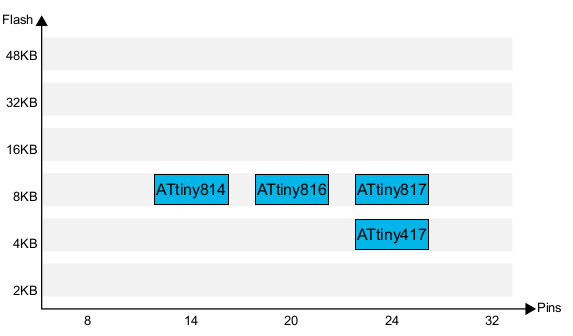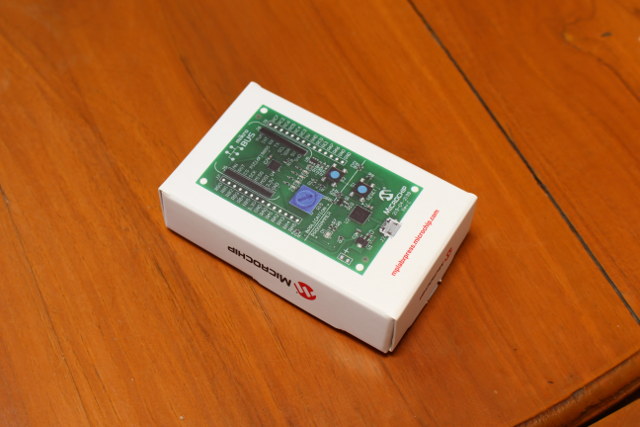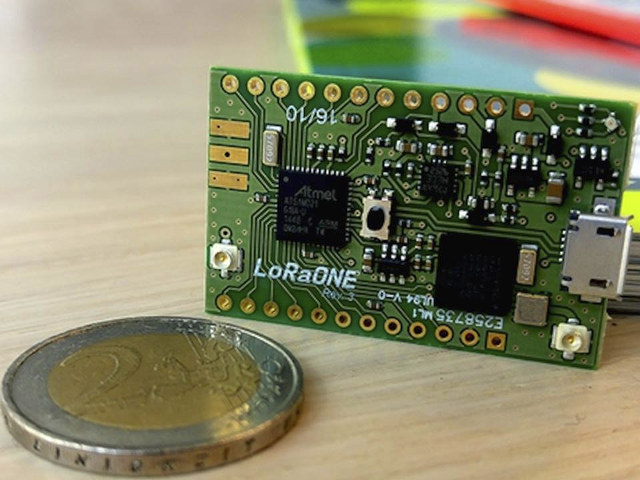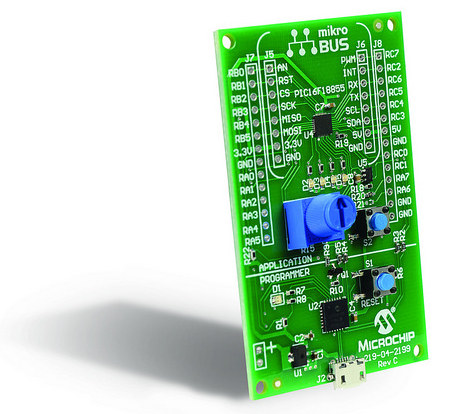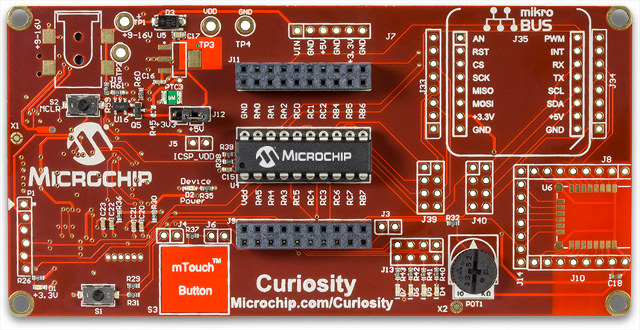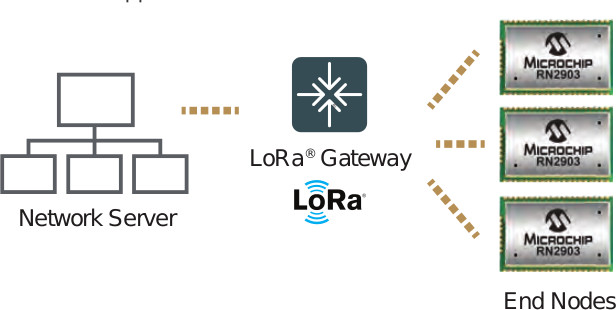Arduino MKRFOX1200 is the first official Arduino board to feature LPWAN technology thanks to a Microchip ATA8520 Sigfox module combined with a Microchip SAMD21 ARM Cortex M0+ micro-controller, all that in the same form factor as MKRZero or MKR1000 boards. Arduino MKRFOX1200 specifications: MCU – Microchip SAMD21 ARM Cortex-M0+ MCU @ 48 MHz with 256KB flash, 32KB SRAM Connectivity – Microchip AT8520 Sigfox module operating @ 868 MHz with 2dB “GSM” antenna connected to u.FL connector 2x 14-pin headers for I/Os: 8x digital I/O 8x external interrupts (0, 1, 4, 5, 6, 7, 8, A1 -or 16-, A2 – or 17) 7x analog inputs (8/10/12-bit ADC) 1x analog out (10-bit DAC) 12x PWM pins ((0, 1, 2, 3, 4, 5, 6, 7, 8, 10, A3 – or 18 -, A4 -or 19) 1x UART, 1x SPI, 1x I2C 3.3V operating voltage DC Current per I/O Pin 7 mA USB – […]
Secure IoT Connectivity with NodeMCU ESP8266 Board, ATECC508A Crypto Chip, Mongoose OS, and AWS IoT
There are many examples of Internet of Things projects, but more often than not the implementation is not secure, either because the device is exposed to the Internet with minimum or no security (worst case), or a gateway (hopefully) provides secure connection to the Internet, but the communication between sensor nodes and the gateway in the local network is not secure, due to memory limitation of the nodes, for example it might be challenging to implement security on ESP8266. Mongoose OS is an open source operating system for the Internet of Things developed by Cesanta working on ESP32, ESP8266, STM32, and TI CC3200, and the developers have demonstrated a secure solution with Mongoose OS running on ESP8266 connecting over a TLS connection to AWS IoT (Amazon Web Service IoT) and using TLS credentials stored in Microchip ATECC508A CryptoAuthentication Device. The addition of ATECC508 chip either using “XplainedPro extension board for […]
Microchip Atmel ATtiny417/814/816/817 tinyAVR MCUs Include Core Independent Peripherals (CIPs)
Microchip’s latest Atmel tinyAVR MCUs combine Atmel 8-bit AVR core with CIPS (Core Independent Peripherals) normally found in the company’s PIC MCUs. Since Atmel’s purchase by Microchip, I believe this is the first time the company leverages features from both MCU families. The four new ATtiny MCUs come with 4 to 8 KB flash, and up to 24 pins: ATtiny417 – 8-bit Atmel AVR MCU with 4KB Flash, 256 bytes SRAM, 128 bytes EEPROM, 20MHz/20 MIPS, two 16-bit timer/counters, one 12-bit timer/counter, RTC, USART, SPI, Two-wire Interface (I2C), 10-bit ADC, 8-bit DAC, analog comparator, accurate internal oscillators and multiple calibrated voltage references, Custom Logic, 10-bytes unique ID, and 24 pins ATtiny814 – Same as above but with 8KB flash, 512 bytes SRAM, Peripheral Touch Controll (PTC), and 14 pins ATtiny816 – Same key features as ATtiny814 but with a 20-pin package with more I/Os ATtiny817 – Same key features as […]
Getting Started with MPLAB Xpress Board and Online IDE
Microchip launched MPLAB Xpress online IDE and board earlier this year, and as part of the launch they offered 2,000 free boards. I joined the program and received my board. The keyword for the board is “Xpress”, as you should be able to get started in mere minutes thanks to the operating system agnostic online IDE that works with Internet Explorer, Firefox, Chrome, and Safari. That also means you don’t need to install any other tool. All you need is a web browser. MPLAB Xpress Board Let’s start by quickly checking out the package, board, and offline documentation. Once you open the package, you’ll get the board, a folded sheet of paper for the schematics, and some information on the package itself with the pinout diagram, and a quick start guide explaining that the board acts as a mass storage device, and all you need is a web browser for […]
LoRaONE is a Small LoRa IoT Development Board Based on Atmel SAMD21 MCU, Microchip LoRaWAN Module (Crowdfunding)
While there are many long range LPWAN standards, LoRa appears to be one of the most popular with boards such as LoPy, and now SODAQ LoRaONE module hitting crowdfunding campaigns. LoRaONE is powered by an Atmel Cortex M0+ micro-controller, features Microchip RN2483 or RN2903 LoRaWAN module, GPS, and various sensors. LoRaONE board specifications: MCU- Atmel ATSAMD21G18 ARM Cortex M0+ micro-controller @ 48 MHz with 256 KB flash memory, 32KB SRAM, and up to 16 KB EEPROM (by emulation) Connectivity LoRa via Microchip RN2483 (433/868 MHz) or RN2903 (915 MHz) module depending on your region GPS via u-blox EVA 7M USB – 1x micro USB port for power and programming Expansion headers (unpopulated) 14x digital pin, 12x for analog and 8x for PWM, plus UART, SPI and TWI (I2C) Analog output pin – 10-bit DAC External Interrupts: Available on all pins DC Current per I/O pin: 7 mA Operating Voltage – […]
Microchip Introduces MPLAB Xpress Cloud-based IDE and MPLAB Xpress Evaluation Board
Microchip has just launched MPLAB Xpress online IDE with some of the most used features of the company’s MPLAB X IDE, as well as a free – in limited quantities – MPLAB Xpress evaluation board based on a PIC16 micro-controller. Let’s get through the development board specifications first: MCU – Microchip PIC16F18855 MCU with 14KB flash, 1KB SRAM, 256 bytes EEPROM USB – micro USB port for power and programming Expansion Headers Unpopulated mikroBUS header supporting one of 180 Click boards Unpopulated 2x 14-pin header with GPIOs, I2C, SPI, UART, ADC, etc… Misc – Reset button, user button, potentiometer Dimensions – N/A Playing with hardware is always more fun, but if you just want to evaluation the online IDE, you don’t even need the board. Visit MPLAB Xpress Code Examples page, load one of the example, possibly log-in if you want to save changes to the 10GB free online storage […]
$15 Microchip Curiosity Development Board Supports 8-bit PIC Microcontrollers
I’ve just found out Microchip had introduced Curiosity development board a little while ago, in order to let students and others experiment with their 8-bit PIC DIP MCUs, and including MikroElectronika Mikrobus footprint, an interface for Microchip RN4020 module to add Bluetooth Low Energy, as well as other headers and some extra features like buttons, and a potentiometer. Microchip Curiosity board specifications: MCU – PIC MCU socket for 8, 14, and 20-pin micro-controllers with PIC16F1619 pre-installed. Expansion mikroBUS Click Board footprint Microchip RN4020 Bluetooth Module Footprint USB – USB mini-B connector Misc – Master Clear Reset button, potentiometer, LEDs, mTouch button, push button Power Supply 5V via USB 9V using an external power supply (footprints only) 3.3V to 5V external power supply via TP3 and TP4 pins Dimensions – N/A There are over 160 MikroElektronika Click boars on the market now, but only seven are listed with code samples for […]
Microchip Introduces $11 RN2483 & RN2903 LoRa Modules and $70 LoRa Evaluation Kits for IoT & M2M Applications
LoRa is one of those long range low power WAN standards used for the machine to machine (M2M) and Internet of things (IoT) applications. I already featured a Semtech Lora module here with a line-of-sight range of up to 20 to 30km, and the company has just partnered with STMicro to deploy LoRa solutions, but today, I’m going to have a look at Microchip Lora modules and development kits that I discovered in the company’s Micro Solutions Nov/Dec 2015 publication. The company has launched two modules for the European and North American markets with respectively RN2483 LoRa 433/868 MHz R&TTE Directive Assessed Radio Modem and RN2903 915 MHz North American modem. Apart from the different frequencies, both modules have similar features: On-board LoRaWAN Class A protocol stack Tx/Rx Power RN2483 – 40 mA (14dBm, 868MHz) Tx, and 14.2 mA Rx @ 3.6V RN2903 – 124 mA Tx max, and 13.5 mA […]


